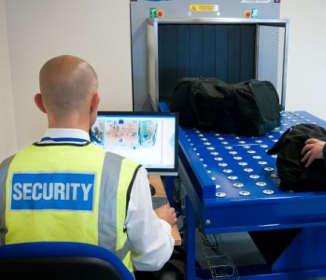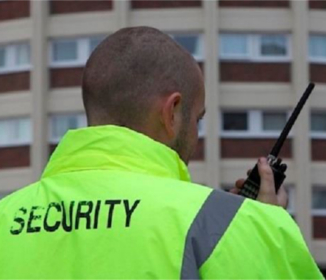In order to work as a front line security guard in the UK, you will most likely need a licence. Although there are some jobs you could fill without being licenced, these are rare. The average security guard will get his/her licence in order to have access to the widest range of job possibilities. The Security Industry Authority (SIA) handles licencing; they require completion of a certified training programme before a licence is approved.
Most security guards looking for entry-level work will take the standard Level 2 front line training course that can be completed within 3-4 days. However, it might be better to take the Door Supervisor Training Course instead, as it allows licenced guards to work in environments where alcohol is served – such as bars, nightclubs, and concerts and venues.
For our purposes, we will concentrate on the Level 2 front line training course as this is the one most will start with. It is divided into three modules, with tests taken at the conclusion of each one. The three modules are:
1. Working in the Private Security Industry
2. Working As a Security Guard
3. Conflict Management
Each of the three modules is subdivided into individual topics to be covered one by one. The point of this training is to ensure that new security guards fully understand what the job entails and how to do it safely and efficiently. Attempting to work without undergoing proper training is an open door to trouble that a security company does not need.
Working in the Private Security Industry
The first module is intended to give a comprehensive overview of what the private security industry is. This is necessary because, as with any job sector, new workers likely have no idea what they are getting into when they first decide to become security guards. The training allows them to learn as much as possible about the industry prior to actually being employed. According to the SIA, this first module is divided into six sessions:
• Session 1: Awareness of the Law in the Private Security Industry.
• Session 2: Health and Safety for the Private Security Operative.
• Session 3: Fire Safety Awareness.
• Session 4: Emergency Procedures.
• Session 5: The Private Security Industry.
• Session 6: Communication Skills and Customer Care.
Working As a Security Guard
Working as a Security Guard is the second training module students undergo. This module deals more with the day-to-day details of the security guard’s job. Students learn about everything from patrol duties to access control to effective communication. Perhaps the most important session in this module deals with security guards and the law. Remember, security guards are not police officers – they do not possess the same legal authority as the police either. According to the SIA, the second module is divided into the following seven sessions:
• Session 1: Introduction to the Roles and Responsibilities of Security Officers.
• Session 2: Patrolling.
• Session 3: Access and Egress Control.
• Session 4: Searching.
• Session 5: Technology and Systems in the Security Environment.
• Session 6: The Security Officer and The Law.
• Session 7: Communicating, Reporting and Record Keeping.
Conflict Management
One of the most important roles of the security guard is to resolve conflicts before they spiral out of control. This is not necessarily an easy task. Security guards frequently encounter people who are angry, upset, or simply unable to control their emotions. Other times they deal with people who are fearful or panicked. Conflict resolution skills are incredibly important for the security guard in any environment. According to the SIA, this third module is divided into the following four sessions:
• Session 1: Avoiding Conflict and Reducing Personal Risk.
• Session 2: Defusing Conflict.
• Session 3: Resolving and Learning from Conflict.
• Session 4: Application of Communication Skills and Conflict Management for Security Guarding and Close Protection.
Training Costs
Have you been thinking about becoming a security guard? If so, keep in mind the training is not free. However, it is also not expensive. You can complete the Level 2 training course for as little as a few hundred pounds at your local college or training centre. This basic training will at least allow you to apply for your SI licence and begin working as soon as it arrives.
You can continue your training by adding extra modules that will make you eligible for more highly skilled work. The cost of these additional modules depends on the skills being taught and who is offering the training course. You can find more information about training modules and providers by visiting the SIA website.

